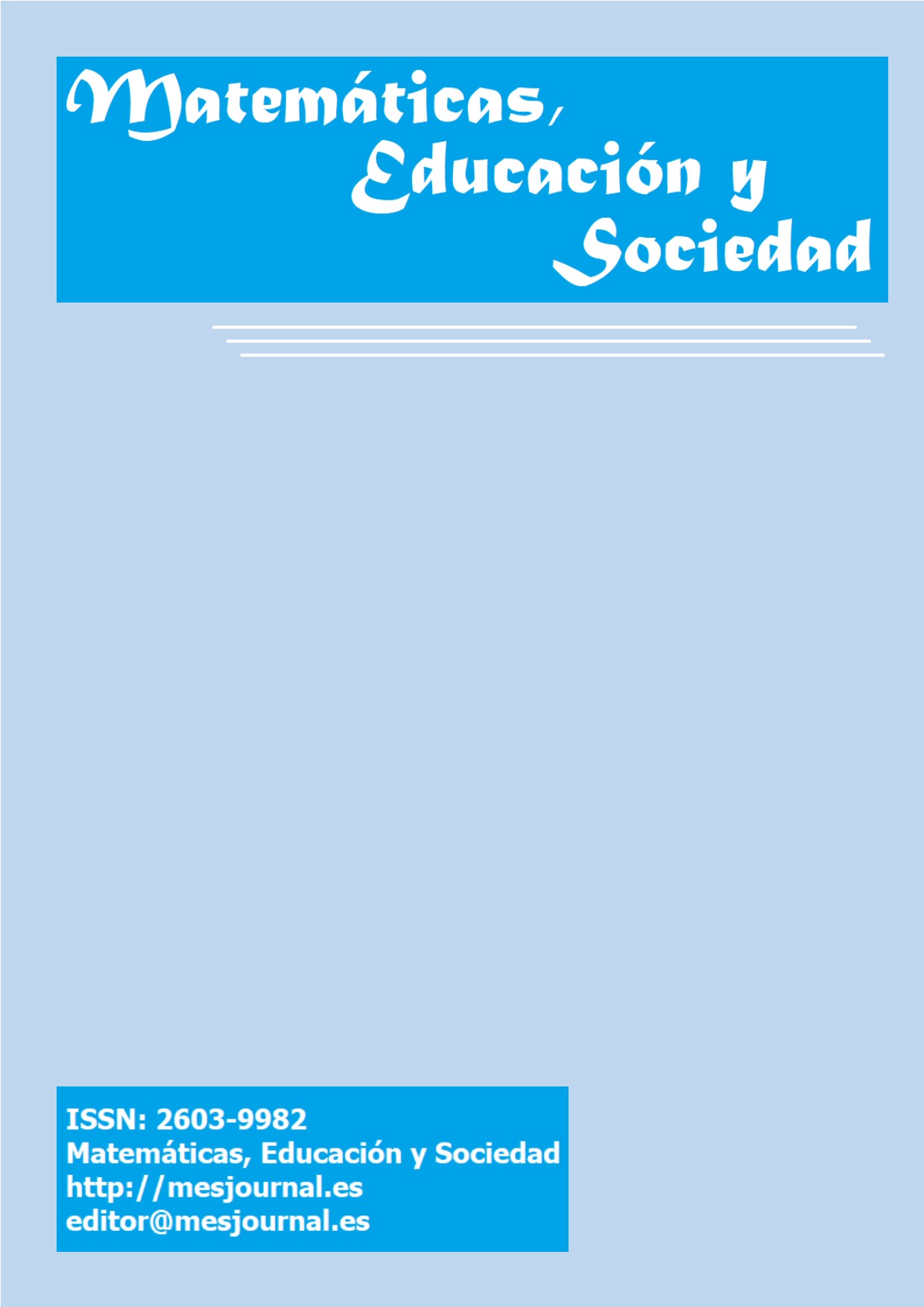Ejemplos de análisis-síntesis en un contexto geométrico. El Analysis Geometrica de Antonio Hugo de Omerique
Contenido principal del artículo
Resumen
Entre los matemáticos españoles del siglo XVII brilla con luz propia el geómetra andaluz Antonio Hugo de Omerique, autor del Analysis geometrica (1689). En dicha obra, alabada por el propio Isaac Newton, Omerique se sirve de un método “nuevo y verdadero para la resolución tanto de problemas geométricos como de cuestiones aritméticas”. Se trata precisamente del método de análisis y síntesis. En este artículo realizamos una breve descripción de esta obra y presentamos algunos ejemplos en los que el matemático sanluqueño aplica el análisis a la resolución de problemas geométricos de construcción. Además, presentamos algunas reflexiones que podrían contribuir al diseño de una actividad para ser llevada a cabo con profesorado de secundaria en formación.
Descargas
Detalles del artículo
Esta obra está bajo una Licencia Creative Commons Atribución 3.0 España
Citas
Barroso Rosendo, J.R. y Saborido Piñero, S. (2018). Antonio Hugo de Omerique. Madrid: Fundación Ignacio Larramendi.
Behboud, A. (1994). Greek Geometrical Analysis. Centaurus, 37, 52-86.
Fernández de Navarrete, M. (1871). Biblioteca Marítima Española (tomo I). Madrid: Imprenta de la viuda de Calero.
Gulley, N. (1958). Greek geometrical analysis. Phronesis, 3(1), 1-14.
Hinitikka, J. y Reme, U. (1974). The Method of Analysis. Its Geometrical Origin and Its General Significance. Dordrecht: D. Reidel Publishing Company.
Jankvist, U.T. (2009). A categorization of the “whys” and “hows” of using history in mathematics education. Educational Studies in Mathematics, 71, 235-261.
Kalmykova, Z. I. (1975). Processes of analysis and synthesis in the solution of arithmetic problems. En M.G. Kantowski (Ed.). Soviet Studies in the Psychology of Learning and Teaching Mathematics. Vol. XI (pp. 1-171). Chicago: University of Chicago.
Kresa, J. (1689). Elementos geometricos de Euclides, los seis primeros libros de los planos; y el onzeno, y dozeno de los solidos: con algunos selectos theoremas de Archimedes. Bruselas: Francisco Foppens.
Lakatos, I. (1978). The method of analysis-synthesis. En J. Worall y G. Curry (Eds.). Mathematics, science and epistemology (pp. 70-104). Cambridge: Cambridge University Press.
Mahoney, M. S. (1968). Another look at Greek geometrical analysis. Archive for History of Exact Sciences, 5(3), 318-348.
Mosvold, R., Jakobsen, A., & Jankvist, U. T. (2014). How mathematical knowledge for teaching may profit from the study of history of mathematics. Science & Education, 23, 47-60.
Omerique, A. H. de (1689). Analysis geometrica sive nova, et vera methodus resolvendi tam problemata geometrica, quam arithmeticas quaestiones. Pars prima de planis. Cádiz: Cristóbal de Requena.
O’Neill, Ch.E. y Domínguez J.M. (2001). Diccionario Histórico de la compañía de Jesús. Biográfico-Temático. Madrid: Universidad Pontificia de Comillas.
Pelseneer, J. (1930). Une opinion inédite de Newton sur «l’Analyse des Anciens» à propos de l’Analysis geometrica de Hugo de Omerique. Isis, 14(1), 155-165.
Polya, G. (1945). How to solve it: A new aspect of mathematical method. Princeton: Princeton University Press.
Puig, L. y Cerdán, F. (1988). Problemas aritméticos escolares. Madrid: Síntesis.
Puig, L. y Cerdán, F. (1999). Acerca del carácter aritmético o algebraico de los problemas verbales. En E. Filloy y T. Rojano (Eds.) Memorias del Segundo Simposio Internacional en Educación Matemática (pp. 34-58). Cuernavaca, Morelos: PNFAPM.
Ritchey, T. (1991). Analysis and synthesis: on scientific method-based on a study by Bernhard Riemann. Systems Research, 8(4), 21-41.
Zaragoza, J. (1669). Arithmetica Vniversal que Comprehende el Arte Menor y Maior, Algebra Vvlgar, y especiosa. Valencia: Geronimo Vilagrasa.

